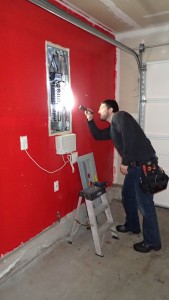Why Are Home Inspections Important?
 A home inspection is an all-encompassing examination of the condition of a home. The home inspection process is often but not always performed at the time of the sale of the home. A home is one of the most important purchases one will ever make. A home inspection is an inexpensive way to discover the universal condition of a home. It is important to conduct a home inspection to avoid a costly mistake by purchasing a property in need of major repairs. Even if you think you have found a “dream home,” it is a home inspector’s responsibility to let you know that your “dream home” may not be just right.
A home inspection is an all-encompassing examination of the condition of a home. The home inspection process is often but not always performed at the time of the sale of the home. A home is one of the most important purchases one will ever make. A home inspection is an inexpensive way to discover the universal condition of a home. It is important to conduct a home inspection to avoid a costly mistake by purchasing a property in need of major repairs. Even if you think you have found a “dream home,” it is a home inspector’s responsibility to let you know that your “dream home” may not be just right.
A certified home inspector is a professional who will conduct an inspection of the general condition of the home. A good home inspection will assist a buyer in understanding exactly what they are about to acquire. A home may look move in ready, but an inspector will cover features of the house such as electrical wiring, plumbing, roofing, insulation, as well as structural features of the home and may unveil issues that are not noticeable to the buyer’s eye. As a buyer, you are making a vast investment, and it is important to understand exactly what you are purchasing. Having a certified home inspector conduct a thorough inspection of the prospective property, could be compared to taking out an insurance policy against all potential operating costs.
There are many different types of home inspection processes that you may want to conduct before the purchase of a home. First and most importantly, you would need a general or residential inspection performed on the home. The certified home inspector would inspect the structure, exterior, roof, electrical, plumbing, HVAC, interior, insulation and ventilation. Once the inspection is completed, the home inspector will generally provide the buyer with a report suggesting any improvements or repairs deemed necessary to bring the home up to current standards. Home inspections may often reveal problems with a home that could be pricey to fix. This could be used as a great tool in purchasing negotiations with the seller. As the buyer you may be able to negotiate the price dependant on what the inspector has found. If flaws were found within the home, the buyer now would have a couple more options in negotiations. A buyer could negotiate a credit with the sellers, have the seller pay for repairs before the closing, purchase the home as is, or walk away from the purchase if the issues seem too problematic. (Source: American Home Inspectors Training Institute)
